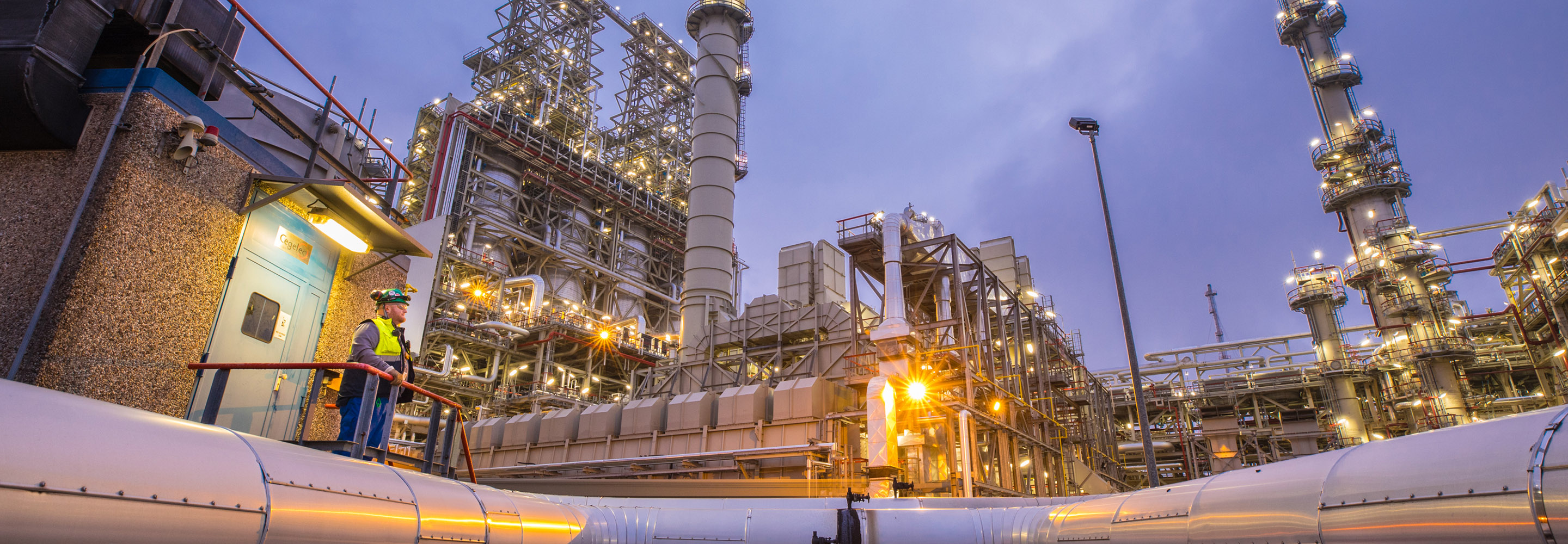selected item

Antwerp refinery
The refinery processes different grades of crude oil varying from light low-sulphur to heavy high-sulphur oil. The crude oil is supplied via the Rotterdam-Antwerp Pipeline, which is co-owned by ExxonMobil. After arrival, the crude oil is stored in the tank farm in the refinery complex before being processed into a range of products, such as LPG, petrol, naphtha, kerosene, diesel, gas oil, fuel oil and raw materials for the chemical industry. The refinery is integrated with the Performance Intermediates Plant, which produces chemical solvents.
Energy efficient
The refinery's relative energy consumption ranks among the lowest in the oil industry. Since 2009, the refinery has operated a high-efficiency cogeneration unit. With a total power output capacity of 130 Megawatts, the unit produces more electricity than the total requirement of the refinery and ExxonMobil's two polymer production plants. The Cogen not only produces electricity and steam, but also heats approximately 50 per cent of the mineral oil from which the refinery products are made. The smart use of generated heat ensures high energy efficiency and therefore results in a substantial reduction in CO2 emissions.
Cleaner fuels
Putting the new hydrotreater unit into operation in 2011, enabled the refinery to increase its production capacity for low-sulphur diesel to a level comparable with the annual consumption of two million diesel-powered cars. The unit uses hydrogen at high pressure to remove sulphur from diesel. As a result, the diesel is relatively clean and the emissions are lower. The hydrotreater is also used to produce more low-sulphur domestic heating oil. In 2019 the refinery commissioned a new Delayed Coker Unit (DCU), involving a capital investment of one billion euros. The DCU converts heavy, high-sulphur residual oils into transport fuels such as diesel and marine gas oil.
ExxonMobil Petroleum & Chemical BV
Antwerp Refinery
Polderdijkweg,
2030 Antwerp
Haven 447
Belgium
Tel.: 03 393 5111
Registered office:
Polderdijkweg, 2030 Antwerp
VAT BE 0416.375.270
RPR Antwerp
BoA Antwerp EUR 685-6691011-19
Products:
LPG, petrol, naphtha, kerosene, diesel, gas oil, fuel oil, sulphur
Various raw materials for the chemical industry
Related content
